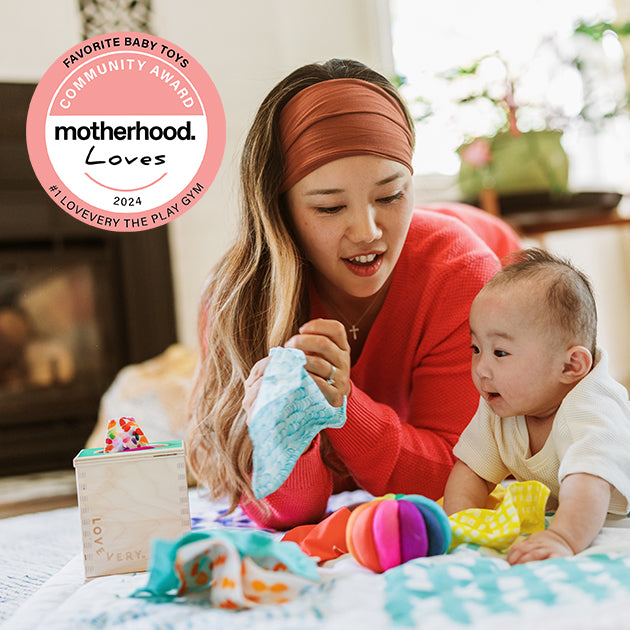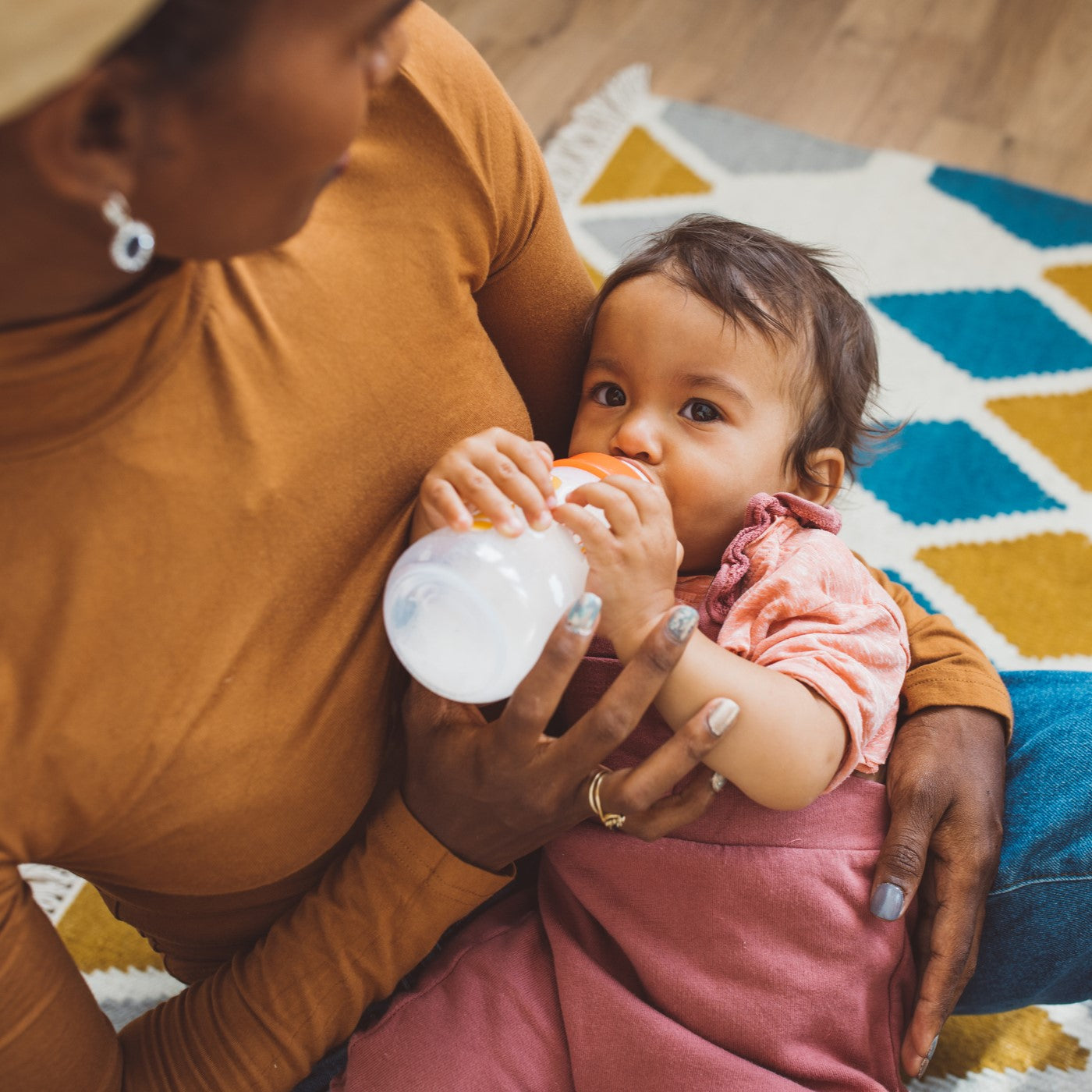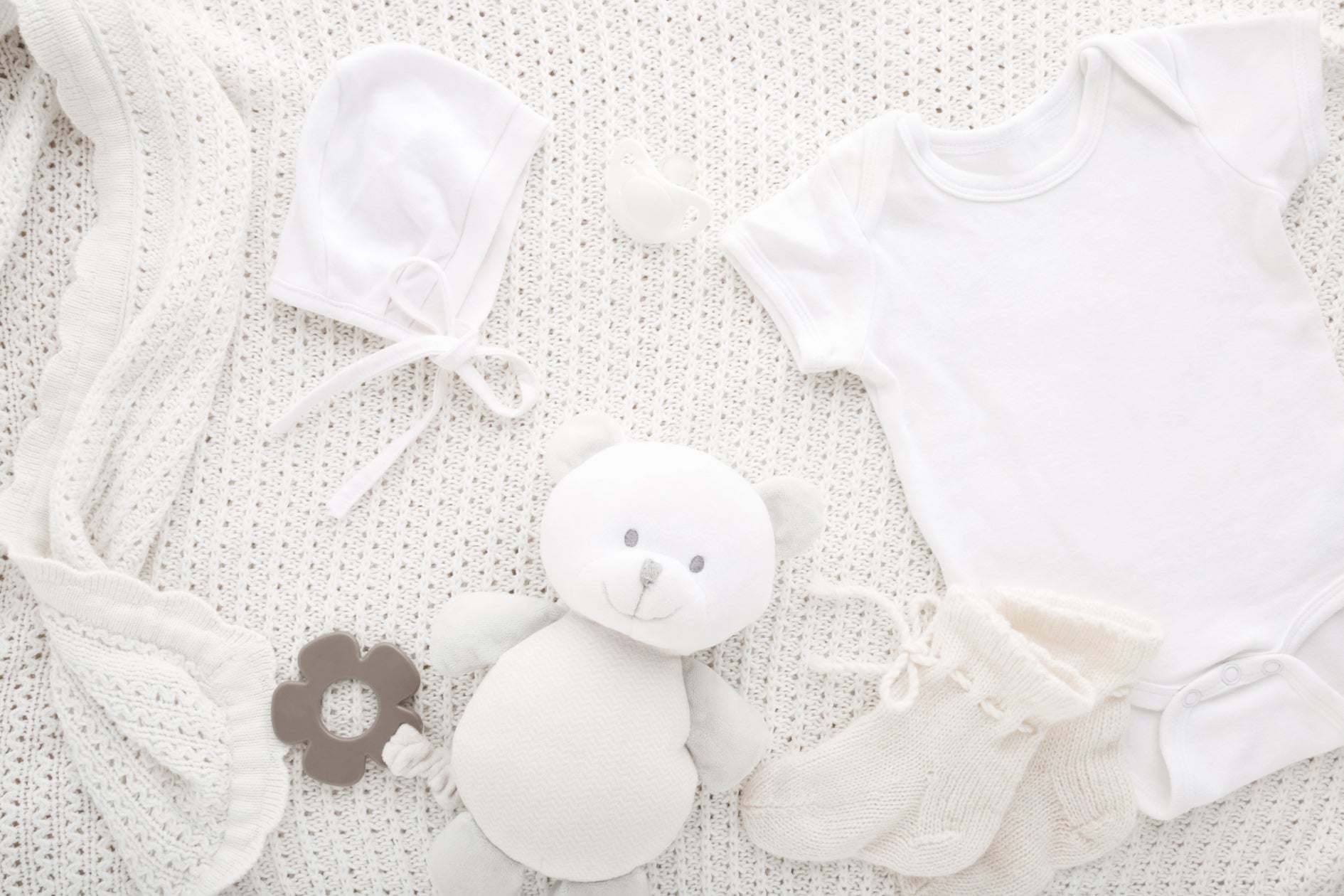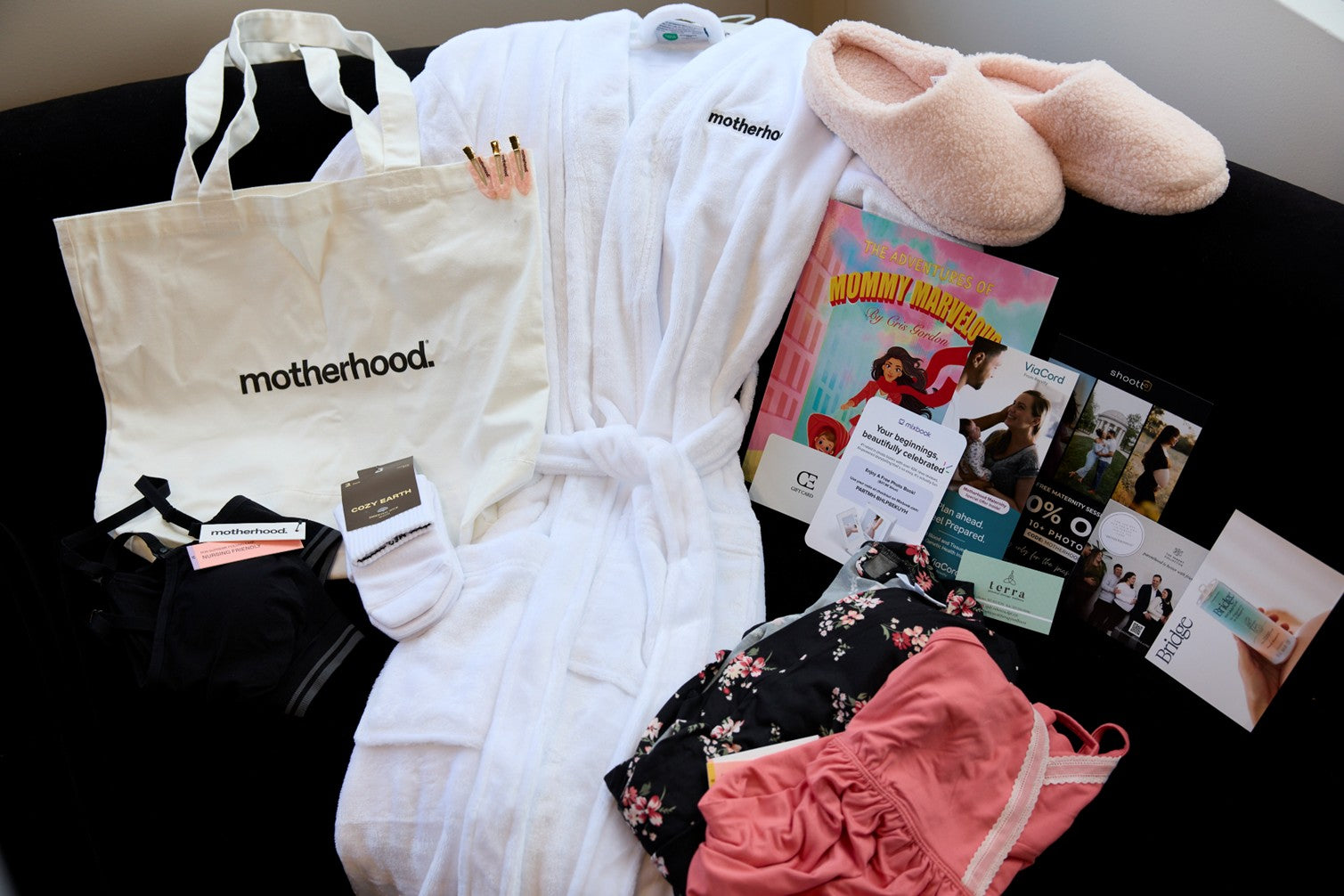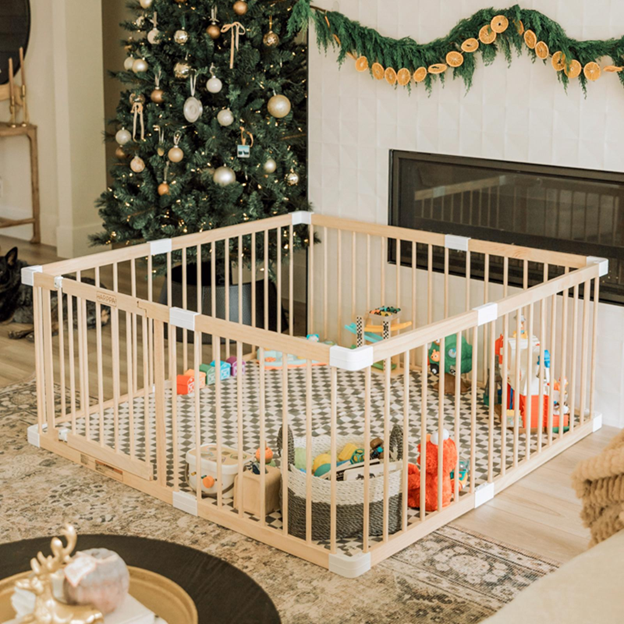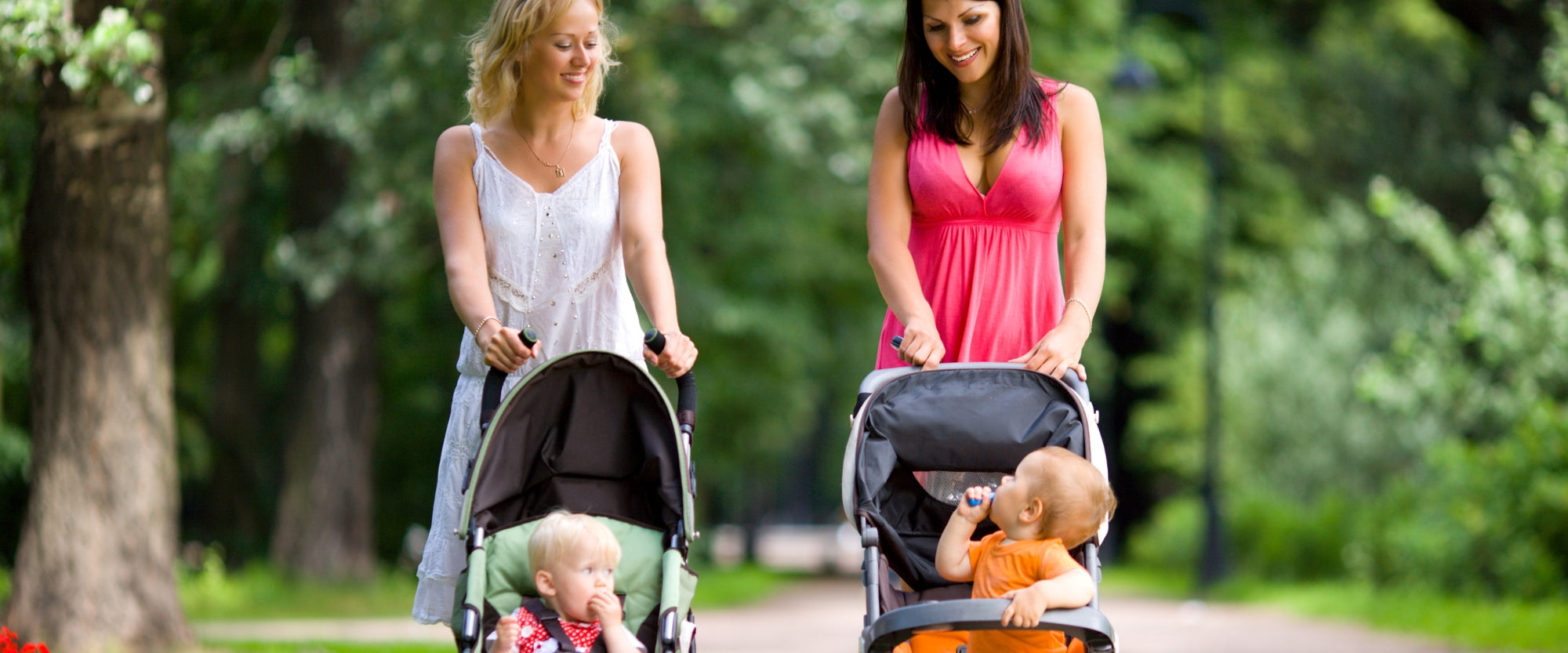With a new baby on the way, it can be easy to get caught up in the excitement without remembering that one very important family member may need a bit more time to adjust to this news. Introducing a new baby to the family can be challenging when there is already an older sibling in the mix. Luckily there are ways to soften the new baby news and get everyone in the family on board and excited.
Preparing your first child for the arrival of a new baby will depend a lot on their age. If your first child is under the age of two then how you share your pregnancy news is a lot different than if your older child–or children–are in their elementary school years or older. Here are the expert tips on preparing your child for a sibling depending on how old they are.
If your first child is a toddler (1-2 years old)
When you’re pregnant: Your little one will likely not fully comprehend what it means that a new sibling is on the way. The best way to handle preparing your toddler for a new sibling is by expressing how excited you are for the baby that is growing inside your belly to arrive. You can let your toddler touch your growing bump; read them picture books about new babies and use the word brother or sister when you speak about the new baby. Reassure your toddler that you love them very much and you have more than enough love in your family to share with a new baby.
When the new baby arrives: It’s not going to be easy to take baby-free breaks, but make sure to set aside special alone time with your toddler. It can be something as simple as bath time or a trip to the library, but spending quality time–even in shorter increments–is still super important. Set up an area of your house that is strictly baby-free yet safe for your toddler. This way they will still feel like they have their own private area.
If your first child is in preschool (3-4 years old)
When you’re pregnant: Preschoolers are able to understand more about what’s going on than a toddler can. It’s generally recommended to tell your preschooler about your new baby after the 12 mark, and when you’re starting to show. Talk to your preschool aged child about what babies can and cannot do, and how their new sibling will go from a crying baby to a full-fledged companion as they get old. This is the ideal time to arrange for visits with friends or family members who already have babies. By exposing them to other families with babies, it can help them understand what it’s really like having a baby in the house. Look into sibling preparation classes at your local hospital or even online. It’s normal for your child to have mixed emotions, including excitement, jealousy, or anxiety.
When the new baby arrives: Congratulate your preschooler on their new role as a big brother or sister. Discuss the special tasks they can help with, such as being your helper when it comes to getting diapers or singing lullabies.
If your first child is school aged (5 years- 12 years old)
When you’re pregnant:
Be honest with your first child about how a new baby will change the dynamics in the house. A new baby takes up a lot of time and attention at first, but that will gradually become easier. Involve your school age child in the planning process for the baby. Ask them to help you decorate the nursery, pick out baby essentials, and possibly even come up with baby name ideas.
When the baby arrives: Ask your school aged child to help with easy tasks like getting the baby ready for nap time or sorting bottles or even pushing the stroller with you. This will make them feel special. Set aside time for alone time with your older child so they don’t feel like the new baby is getting all of the attention.
Teenage children (13 years and older)
While there are fewer limitations on how to tell your teenager that you’re expecting, there are other things to keep in mind. For those parents lucky enough to already have a teenager already at home, the term built in babysitter comes to mind! However, proceed with caution. You may not want to set the tone that you’ll be relying on your teen for childcare. They could potentially wind up resenting the newest family member. Your teenager will still want reassurance that they’re special and you won’t be forgetting them any time soon!
Regardless of how old your first child is, remember these important tips when introducing a new baby into the family:
- Focus on the Positive: Emphasize how much fun it is to have a sibling. Let your child know they will have a built-in friend for life once the new baby gets older.
- Take time to let it sink in: Adjusting to a new sibling is a process and won’t happen overnight. Demonstrate patience and show your love and support as your first child gets used to the new family dynamic.
- Copycat behavior: Your child is watching you to see how they should be interacting with the new baby. Make sure to model gentle and caring behavior and your older child will follow suit.


